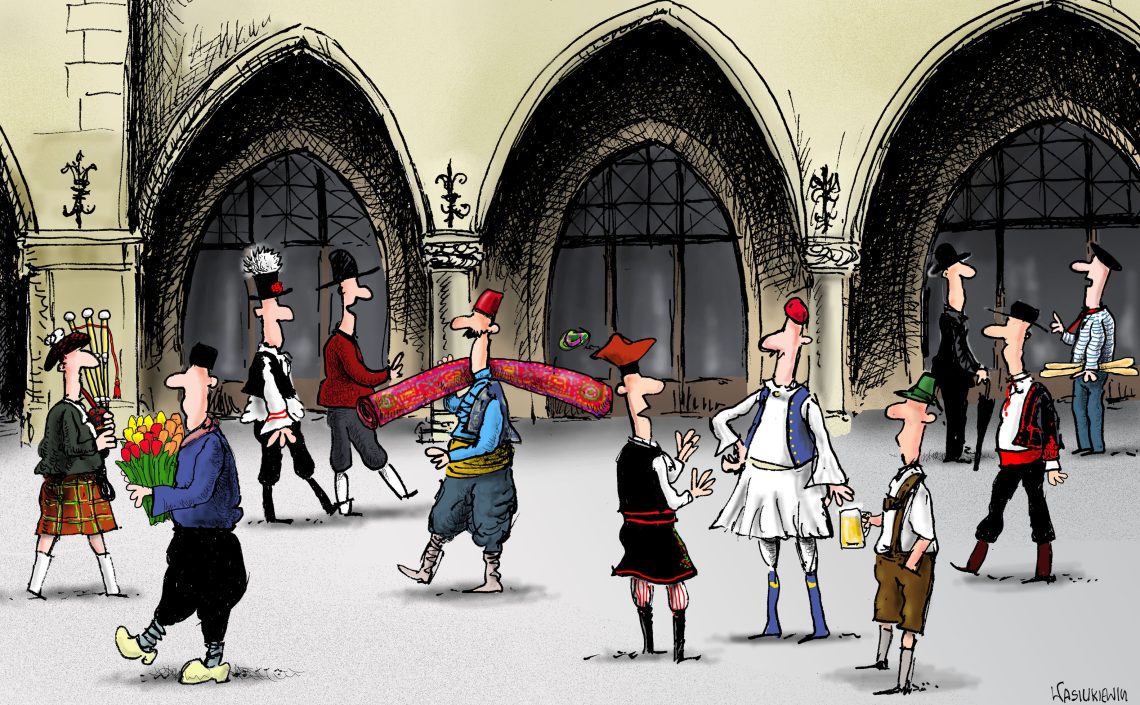A new opportunity for Europe: The European Political Community
The new voluntary political community could strengthen Europe’s global role without subjecting member states to dominance by Brussels, Paris or Berlin.

On the invitation of the Czech presidency of the European Union, heads of state and government from 44 countries met in Prague in early October. The participants included all members of the EU, the European Economic Area (EEA) – which includes Iceland, Liechtenstein and Norway – as well as Switzerland, the United Kingdom, Turkey and Israel, plus the countries of the Western Balkans and the Caucasus.
The European Political Community (EPC) idea was first presented in May by President Emmanuel Macron of France. The community, he posited, should include the EU, the EEA and 10 other countries in the region to serve as a broad platform for voluntary initiatives. The threat posed by the war in Ukraine has added urgency to creating such associations. It makes a lot of sense, and the Prague summit was the proposed body’s first step taken together.
The fundamental principle of the EPC is promising, as it could give the continent a much-needed platform for pursuing shared interests. It could also bring into sharp focus the long-term opportunities for collaboration and firm up Europe’s position in the global arena while preserving the continent’s variety – the source of its strength.
Possible catch
However, for this platform to succeed, it must avoid being misused by Brussels and Europe’s strongest countries to pursue their interests at the expense of smaller states.
President Macron is an ardent European centralist who envisions Europe as an entity run from the top down, with standardized procedures and a powerful administration. Subsidiarity is of little importance in that concept; harmonization is the leading principle. Here we have both a socialist (equalization) and typically French (centralization and focus on state strength) pattern.
That was not the original idea of European integration. In its founders’ vision, the diversity of Europe’s populations, its rich cultural heritage and social and economic solutions were seen as a strength. Integration was meant merely as a way to combine strengths in critical areas. Europe, consisting of middle-sized and small powers, needs to leverage its strength to remain globally competitive. Its competitive edge must be honed by friendly internal competition rooted in the continent’s diversity.
As Mr. Macron’s Elysee realized that centralizing the 27 EU member countries would be a tall order; he came up with a new proposal in 2017. Europe a deux vitesses, a two-speed Europe (also called multispeed Europe), was a scheme in which a core of avant-garde countries would spearhead a deepening EU integration. In practice, France and Germany would jointly build a tight regulatory, economic and political European entity centered around Brussels. The EU’s “peripheral” parts would remain in the Union and enjoy the advantages. The setup, endorsed by Angela Merkel’s chancellorship, would speed up the integration processes of an “ever closer union.”
Other countries can effectively oppose the overly centralist agendas in the new organization.
The chutzpa of this plan was all too obvious. It would push “peripheral Europe” into a kind of dynamic capitulation, forcing the countries to accept all measures decided by “core Europe” without being part of the decision-making process. Noncompliance with the core rules would limit the benefits of the four freedoms of the internal market.
While the idea of the EPC seems worthy of support, one cannot entirely avoid the suspicion of a hidden agenda. Could the new community be used to ensnare countries opposing stronger centralization inside the union, or the two-speed Europe? Will an initiative to build an “anti-Putin” pro-democracy European platform further such ill-begotten ideas?
The EU founders were Christian democrats, firm believers in limited state involvement in the free-market economy and in orderly state frameworks that include the protection of the socially weak. The principles of subsidiarity and self-determination were essential to the founders, and individual freedom and responsibility were the pillars of Europe they envisioned.
Much-needed platform
In the beginning, most social democrats in Europe were wary of such a project. However, gradually they warmed up to the idea, seeing it also as a tool for increased planning of the economy and society. A powerful technocratic administration has been the socialists’ dream. Step-by-step, healthy integration was undermined by excessive harmonization.
Even the suspicion of a hidden agenda would make it wrong to reject the EPC initiative. The project’s geopolitical momentum should be captured regardless of President Macron’s full intentions. Other countries, especially the UK and Switzerland, but also some EU members, can effectively oppose the overly centralist agendas in the new organization. Also, they can shield it from being misused for petty hegemonistic attempts. That risk avoided, the EPC can become a much-needed platform for advancing vital, long-term European interests.
